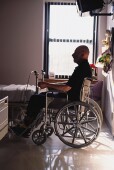
TUESDAY, April 6 (HealthDay News) — The drug lithium doesn’t delay progression of amyotrophic lateral sclerosis (ALS), or Lou Gehrig’s disease, and shouldn’t be used to treat patients with the disease, researchers say.
The findings from a new study contradict promising results from a small pilot study that led to a high level of off-label use of lithium to treat people with ALS, a fatal motor neuron condition. Traditionally, lithium is used to treat bipolar affective disorder.
Currently, there is no cure for ALS. The only approved drug for treatment of ALS is riluzole, which has been shown to extend patients’ lives by an average of three months.
In the new study, American and Canadian researchers randomly assigned 84 ALS patients to receive either riluzole and a placebo or riluzole and lithium. The trial was stopped early after initial findings suggested that lithium would have little or no effect.
“Although a modest benefit of lithium was not ruled out by the study . . . we found no evidence that lithium in combination with riluzole slows progression of ALS more than riluzole alone,” wrote Dr. Swati Aggarwal from Massachusetts General Hospital in Boston and Dr. Lorne Zinman of Sunnybrook Health Sciences Center in Toronto, and colleagues.
“At this time, there remains no convincing evidence for the use of lithium as a treatment for patients with ALS,” they concluded in a statement.
The study findings were released online April 5 in advance of publication in the May print issue of The Lancet Neurology.
More information
The ALS Association has more about amyotrophic lateral sclerosis.

